Scenes from the Dontay Ivy rally, and ideas for change
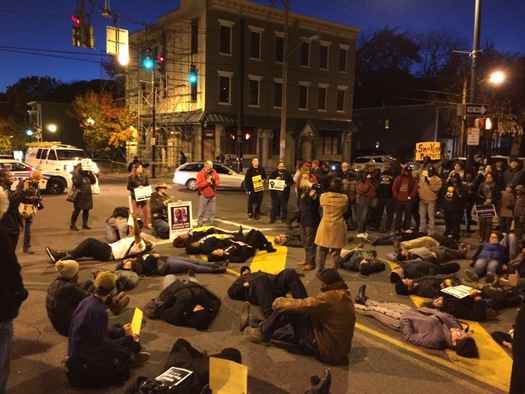
A protest shut down Henry Johnson Blvd for a little more than 10 minutes.
A crowd of approximately 200+ people gathered outside Albany police headquarters early Friday evening to protest the recent decision by an Albany County grand jury to not hand up indictments of the officers involved in the death of Dontay Ivy this past April in Arbor Hill.
The group Capital Area Against Mass Incarceration organized the rally, and the protesters issued a list of demands at the front doors of APD HQ:
+ That three officers involved in the incident in which Ivy died be fired.
+ That Albany County DA David Soares resign.
+ That the Albany police disarm, and stop using tasers.
+ And that Andrew Cuomo issue a response to the situation.
After the announcement of the demands, organizers called for an overhaul of the criminal justice system, which they described as systematically unjust.
"I feel like my family has not gotten justice," said Ivy's aunt, Celinda Okwuosa, to the crowd. She spoke of her nephew's life, including his struggles with mental illness. And she called for a change in police tactics, including an effort on their part to learn how to better relate to the different communities they serve.
After a few speeches, a group of protesters headed out to Henry Johnson Boulevard and shut down the street by lying down for 13 minutes, representing the length of time between when Ivy was first stopped by police and when he died. The protest then marched down Second Street to the spot where Ivy died.
Here are a few scenes from the protest, along with comments from a handful of people there about ideas for change that could help avoid another incident like the death of Dontay Ivy.
Photos
They're above in large format -- click or scroll all the way up.
Ideas for change
We asked a handful of people at the rally this question: What's a specific change you'd like to see in the city that could help prevent another incident like the death of Dontay Ivy.
Answers have lightly edited.
Alfonso Rodriguez
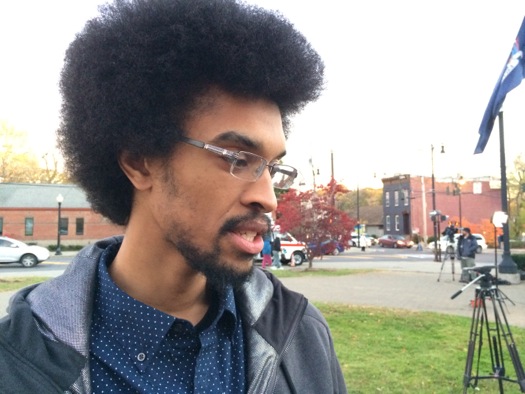
"Everybody's saying body cameras -- that that's the new way to make situations like this at least accountable, to hold police accountable for their actions. When you look at those instances, sometimes it helps and sometimes it doesn't."
"You almost call into question what it is that we can do. And I personally feel that there could be some implicit bias training that addresses officers of one race and how they feel that their bias is addressed toward someone of another race, like in the case of three white officers and Dontay Ivy, an African-American male."
Ron Bailey, Albany Common Council member
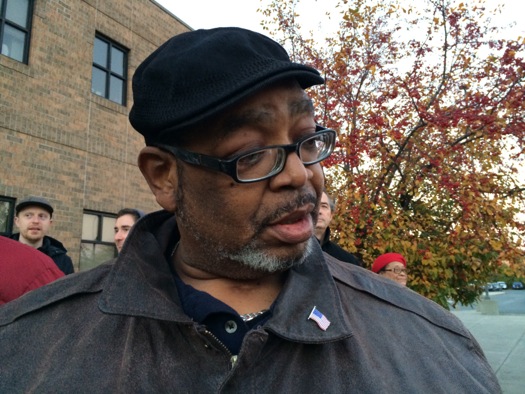
"We need to find out what really happened that night. You know, it's amazing that we went from the night that it happened that there was no video to, all of sudden, we got all types of video. And that was one of the main questions I had from day one, is there any video? And they said no. All of sudden we have all types of video. So I have a problem with that."
Bailey said he's working on legislation to address how police video is handled.
"We can't rely on the police. We have to have an independent body that looks at this video to determine what really happens. Because the victim can't speak for himself -- we just have the police and victim there. So when it went to the grand jury, the only side that you can hear is the police side. There's nobody there to speak for the victim. So, we don't know what happened. They went with whatever the police told them. That's why where we're at today -- one sided."
Earlier Friday Albany police released to the public a few video clips from the incident in which Dontay Ivy died. [TU]
Sean Desiree
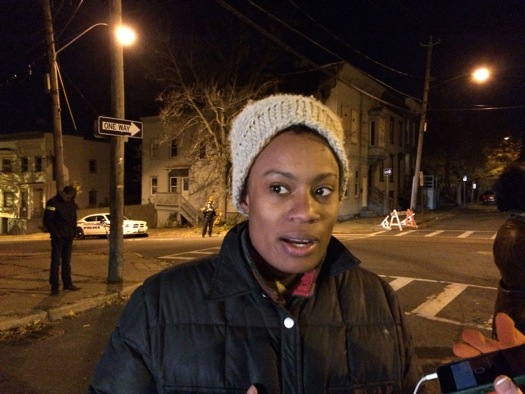
"There's many things. One thing that stands out is, New York City passed [a rule] that you cannot stop and frisk [unless] you have something actual to go on. That coming to Albany would extremely beneficial."
"Trainings are so important. As we know, everyone has racism within them. Everyone has sexism. All that's within us. And to just expect that a police officer that has no experience of black people -- some people grow up in the suburbs and don't know any black people -- to come into a space where they're expected to be able treat people fairly when you have no experience... so, training. And no stop and frisk, because it escalates -- and as we've seen today, people die."
Rosy Galvan
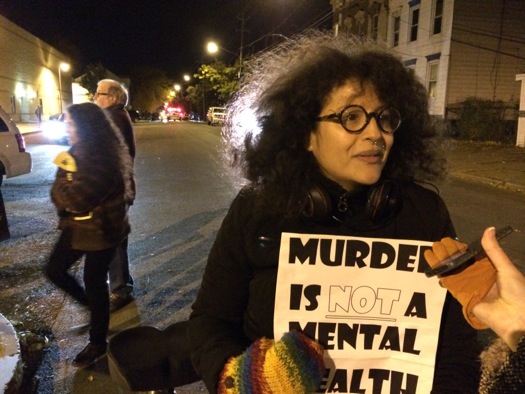
"I've been living in Albany for a while. I originally came here to get my degree in social work. As a social worker, it's devastating to me that I can't rely on systems that are supposed to be in place to help me and to help my community, to help address issues that are embedded for centuries. Especially today, to know that Dontay lived with schizophrenia, to know that someone with a mental health issue would be treated like an animal is incredibly concerning to me. ..."
"I think first and foremost, Albany is painfully segregated. As a person of color, it's really challenging to live in a place where I have to live on the white side of town or I have to live on the black side of town -- like there's really no in between. So I would love for white folks and allies -- just white people in general -- to understand that Albany is a tale of two cities. And I would love to see white people step up to the plate and advocate for all its residents, not just people who live in Center Square or the college area. This is all of our city. I would love to see more representation even. It's not just with violence and with incidents like this. Art on Lark, Larkfest, there's no performers of color. I pick up the Metroland and I don't see anyone who looks like me. So there's a lot we can do on the day-to-day to change our city."
Masai Andrews, CAAMI organizer
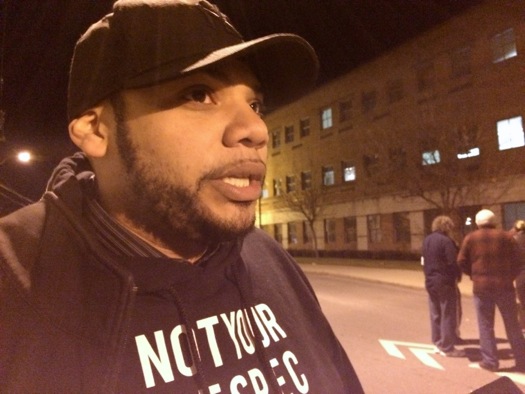
"Related to this incident, the first thing I would like is those three officers fired. Related to mass incarceration as a whole, or just to save lives, I'd like to see the police disarmed, if I was just to do one thing."
"Unfortunately, there are several steps to be taken. The whole system is corrupt. We need to dismantle the way we think about policing and mass incarceration. Half the people in jail right now are there for nonviolent drug offenses. If I had one wish, it would be that tomorrow right away, without even double checking, half the people would be set free. And then everyone else we just need to go through and see where they can go to get help. Not everyone needs to be incarcerated. We have ten times the incarceration rate of the rest of the world. And that is a travesty. And that is something we have to dismantle immediately, because it's killing our communities."
Anjelica Clarke, CAAMI organizer
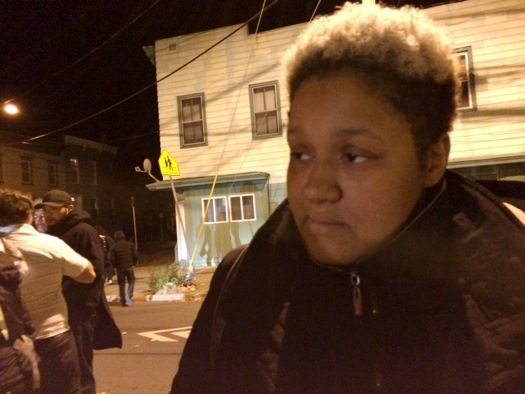
"One specific thing is really hard to say. The most basic and important change that could happen is community-controlled police departments, departments that aren't just autonomous bodies that have slight oversight. But rather a security force -- probably not a police department -- that would be decided by the community what the needs were and how you would actually achieve justice in your neighborhood. So something like just randomly getting stopped wouldn't happen because there would have to be an incident for you to be called upon. So, really, just a transformation of how the police department works could be the one thing to keep this from happening again."
____
Earlier on AOA: Four ideas for changing things for the better in marginalized communities
Hi there. Comments have been closed for this item. Still have something to say? Contact us.
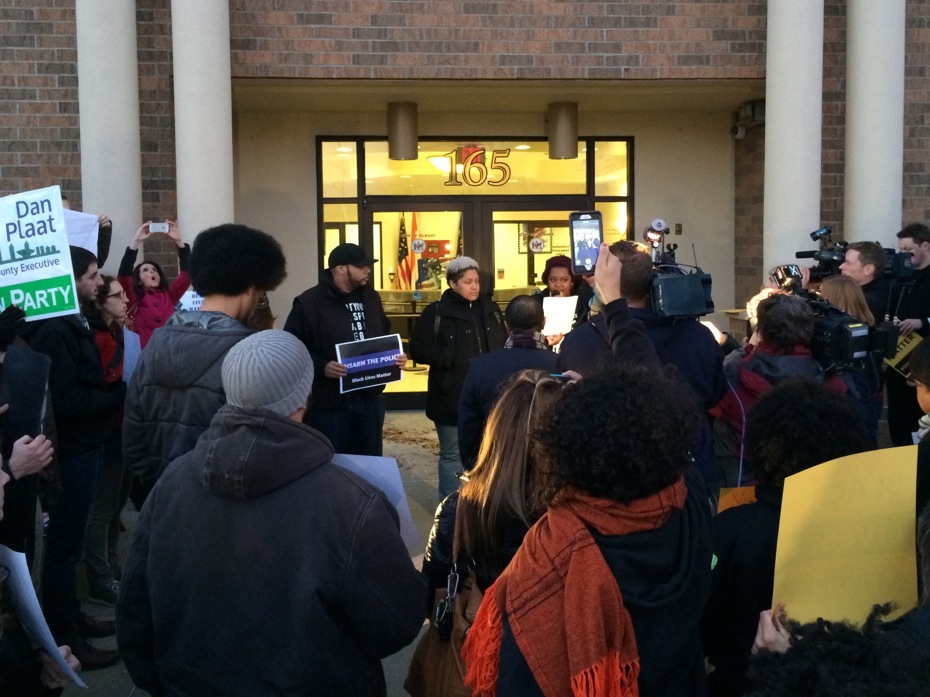
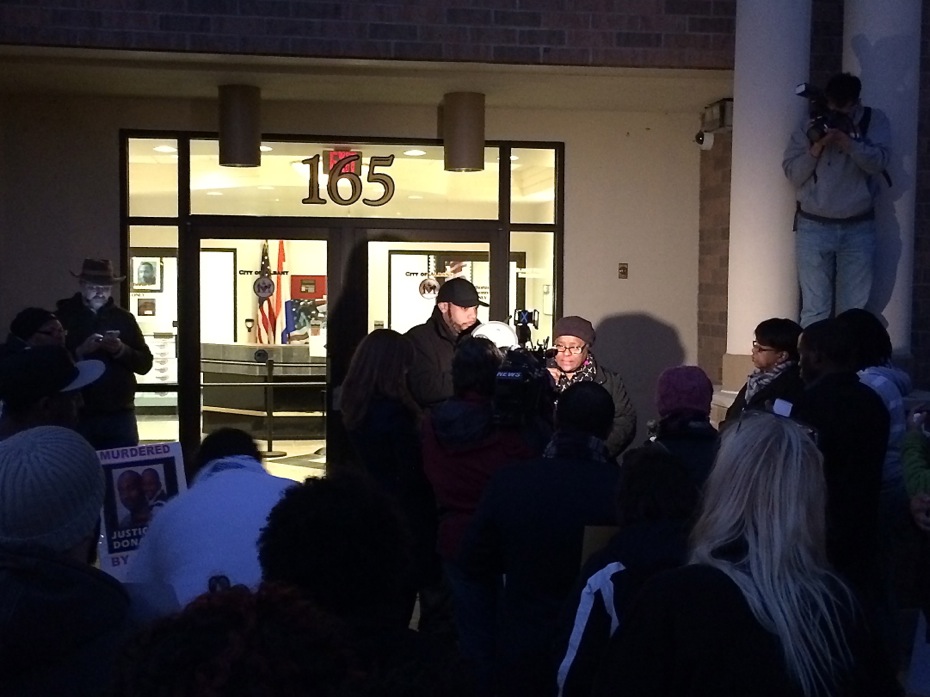
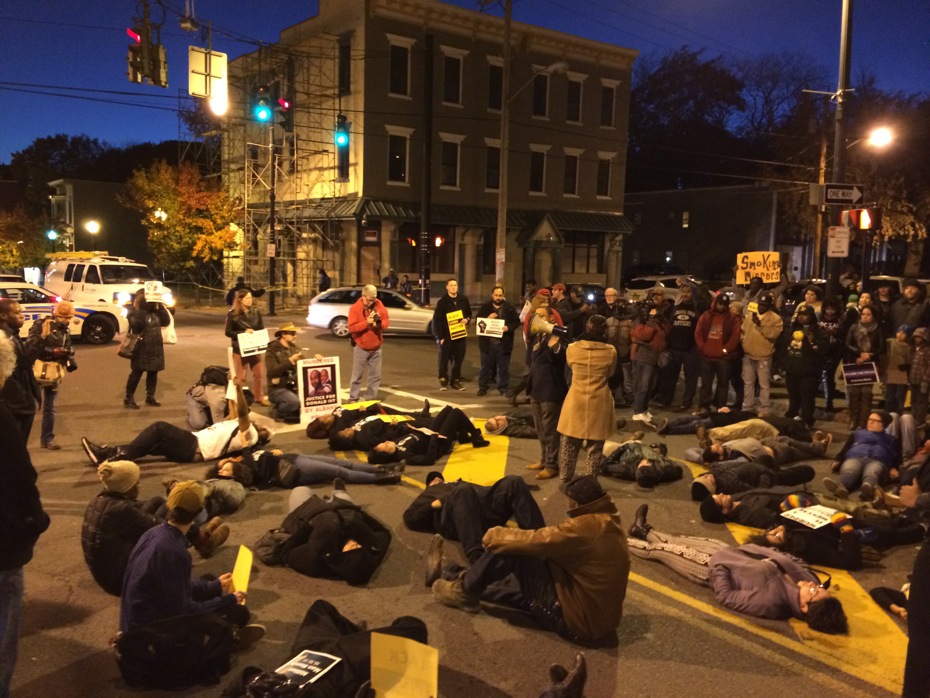
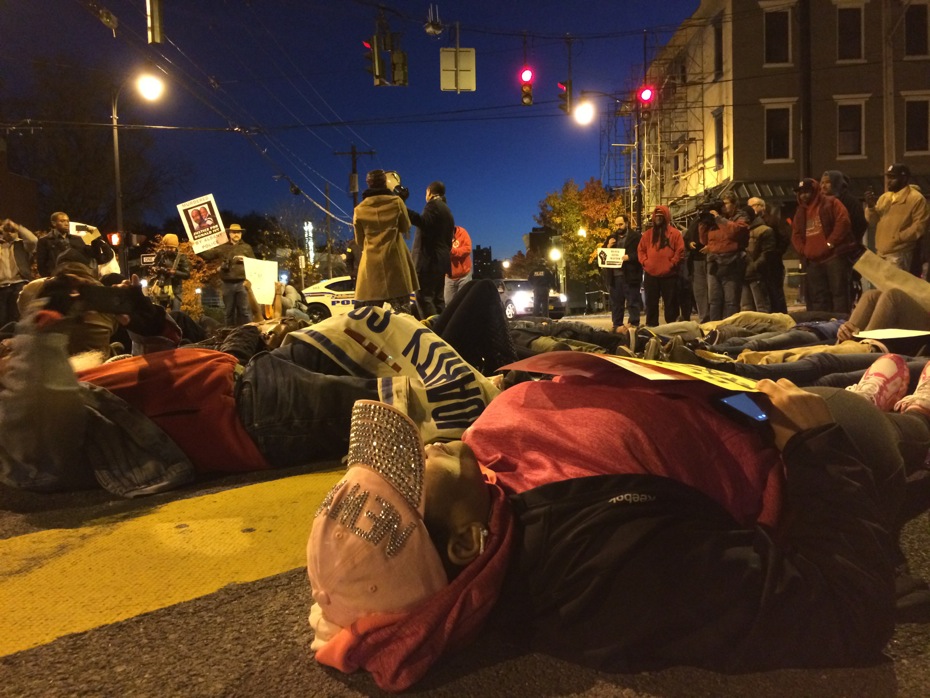
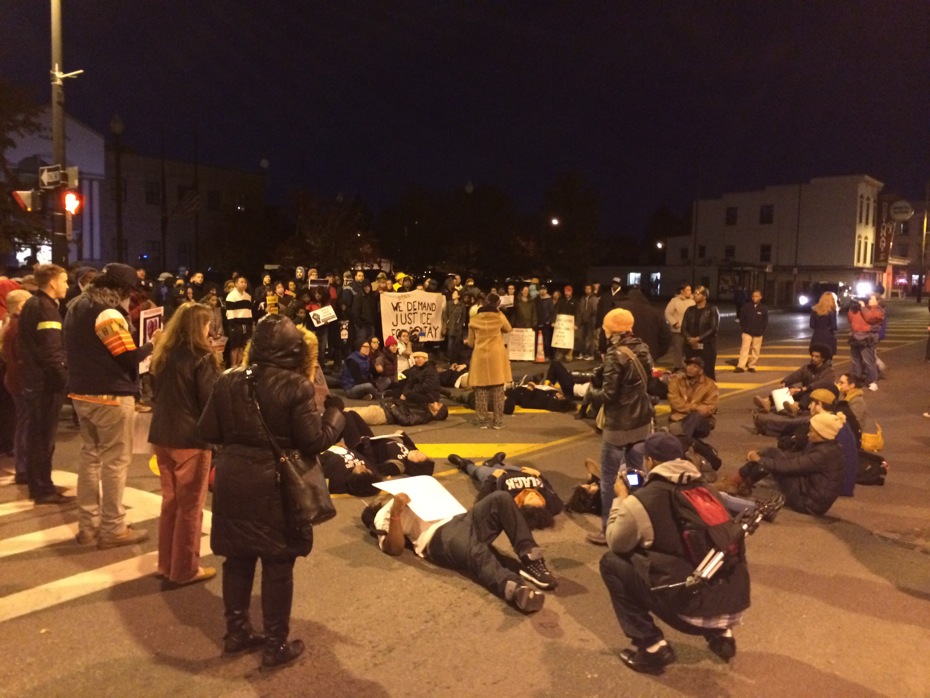
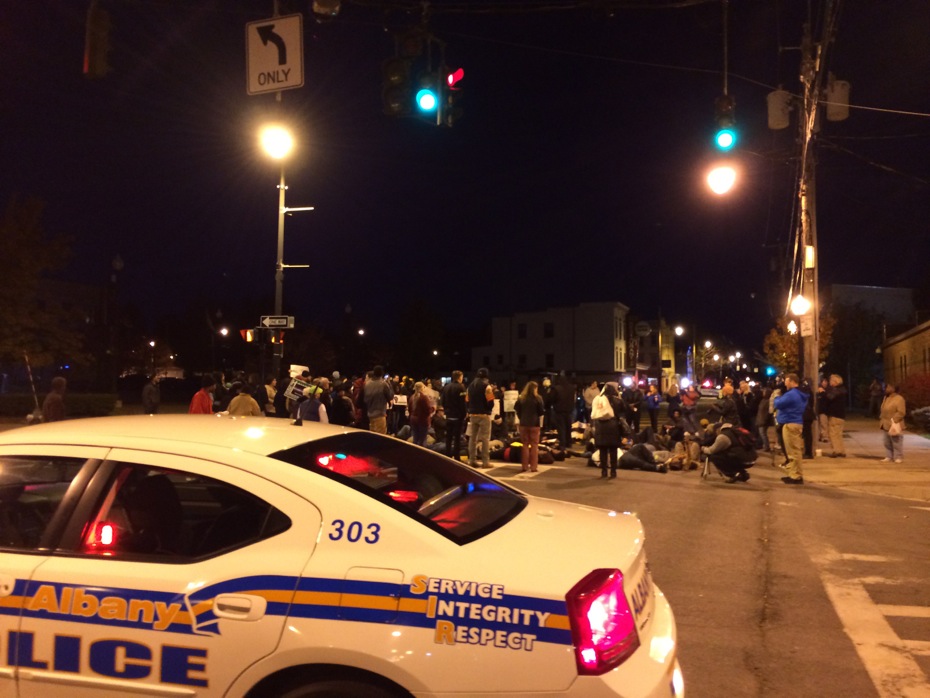
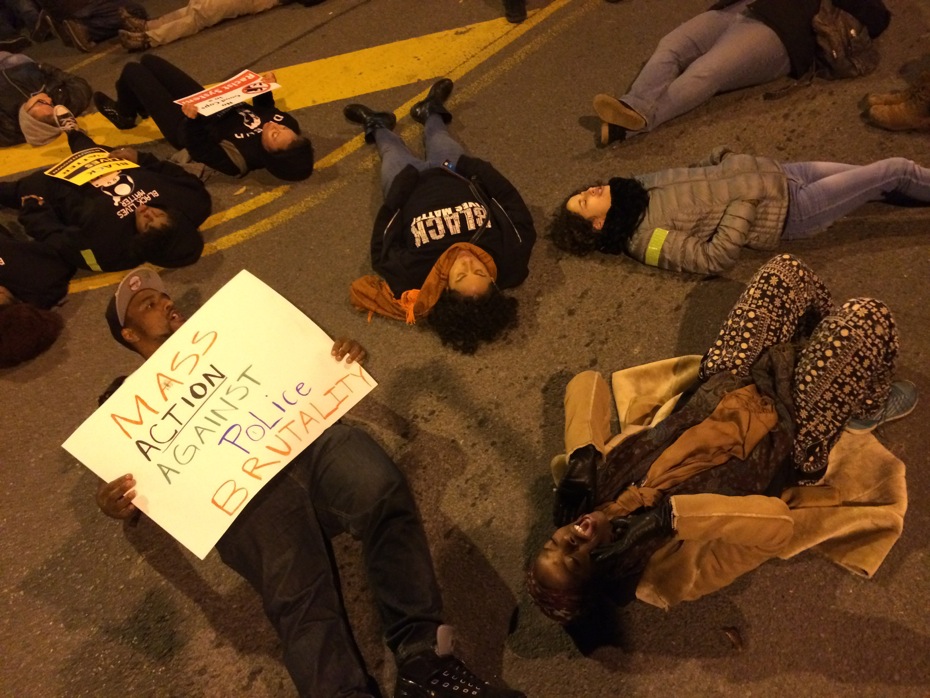
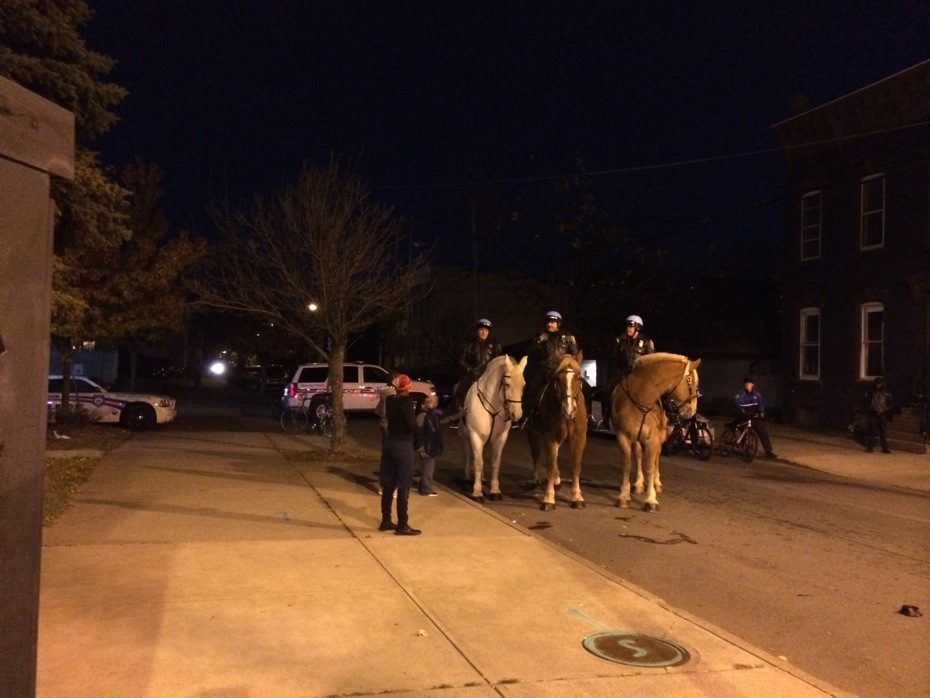
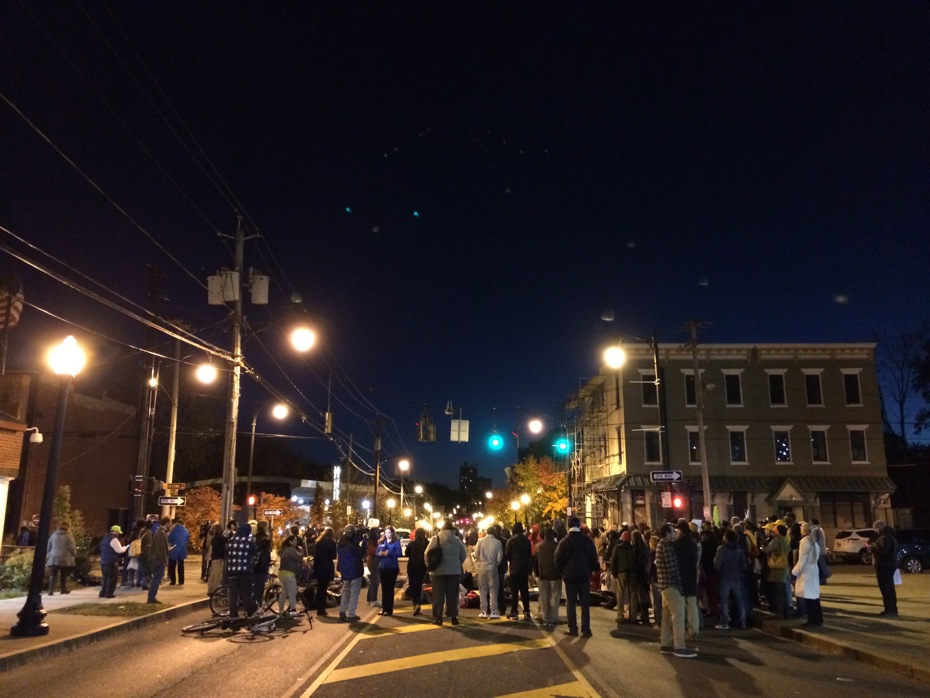
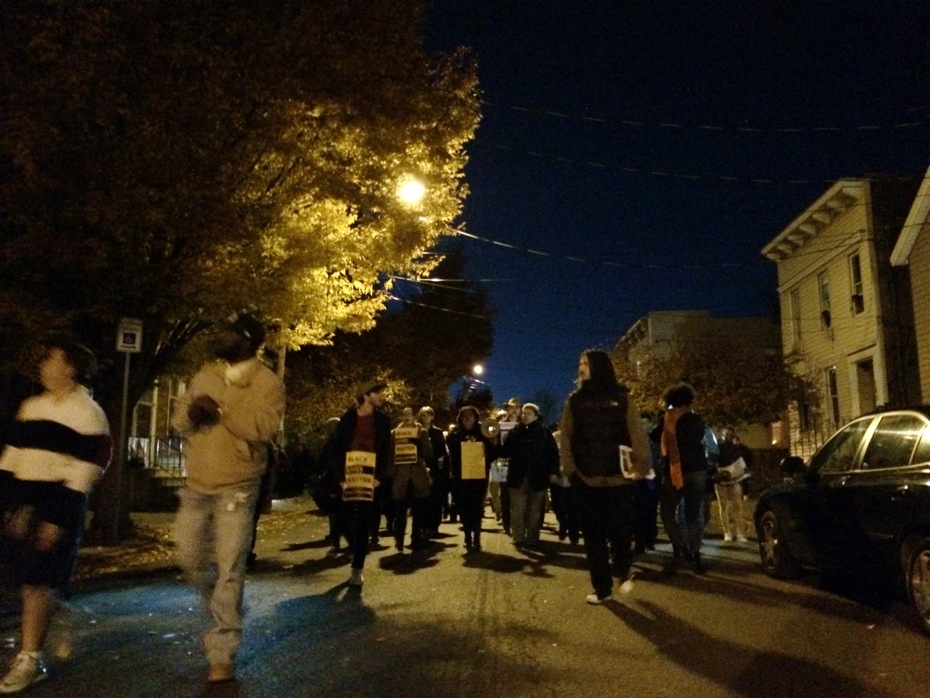
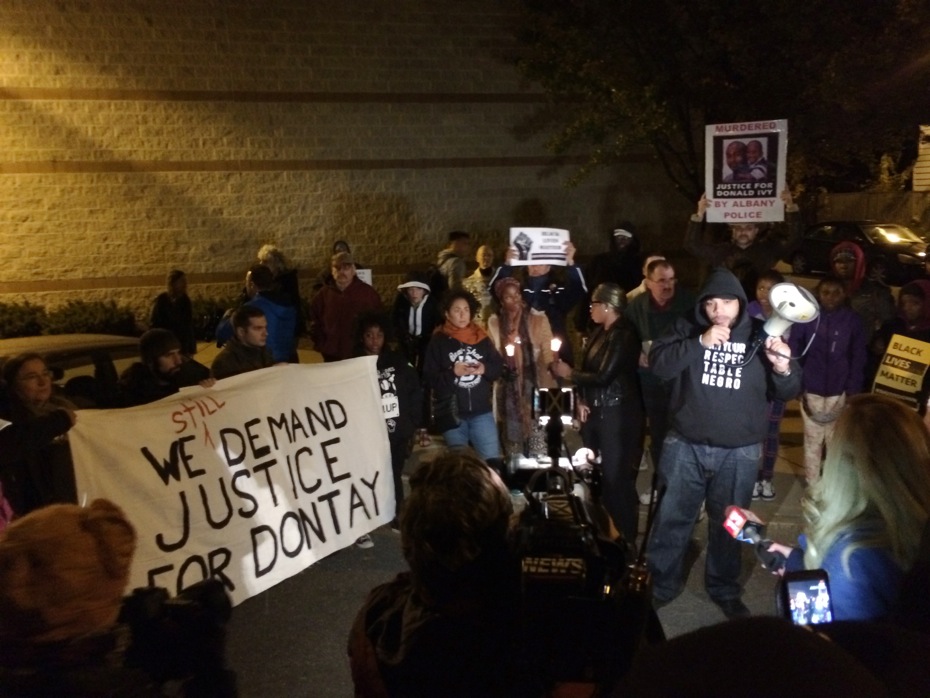
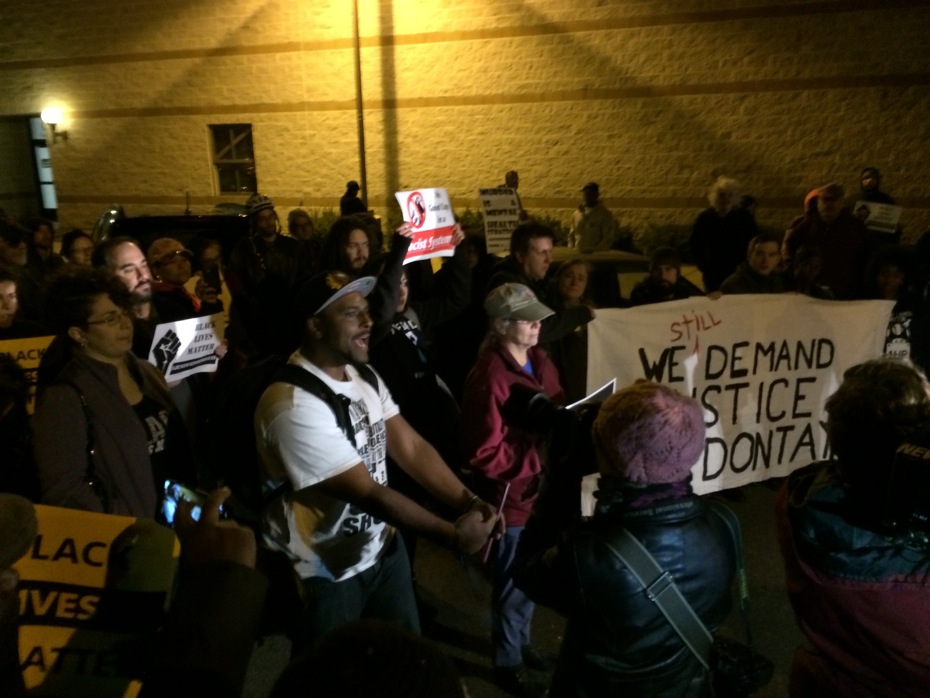
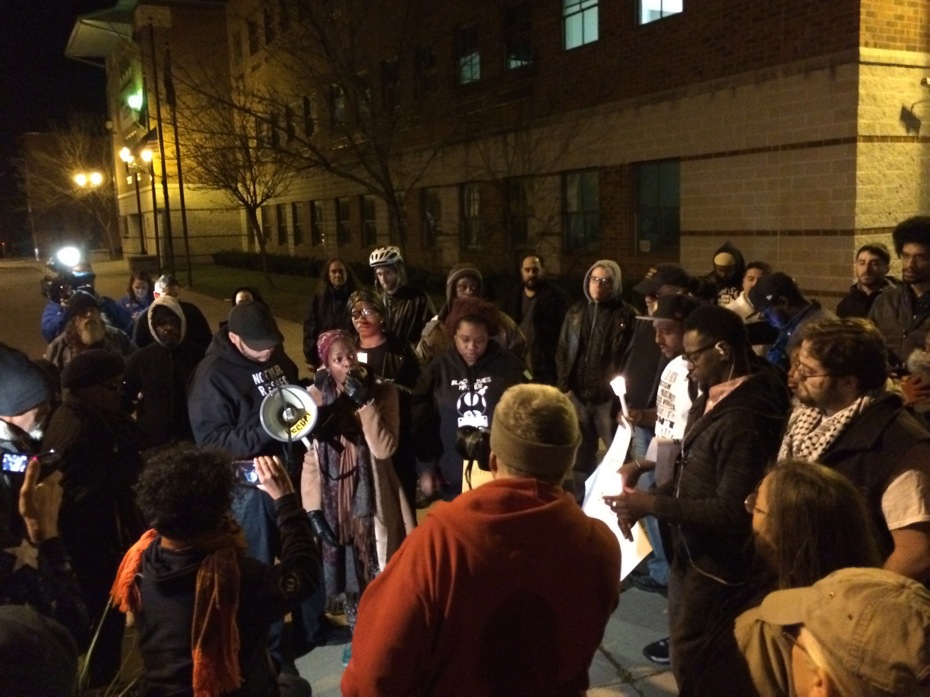
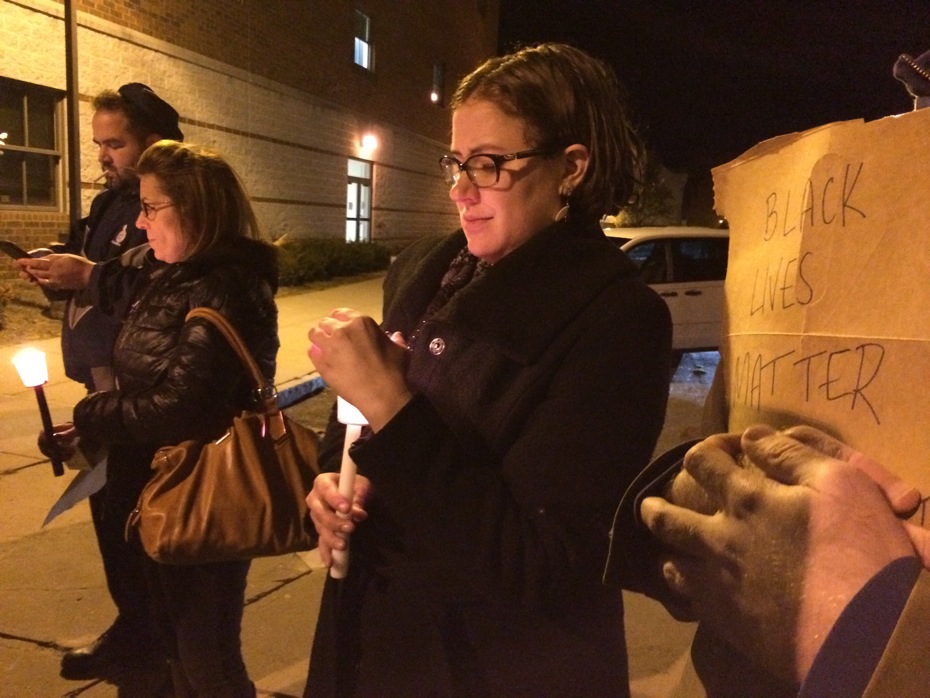
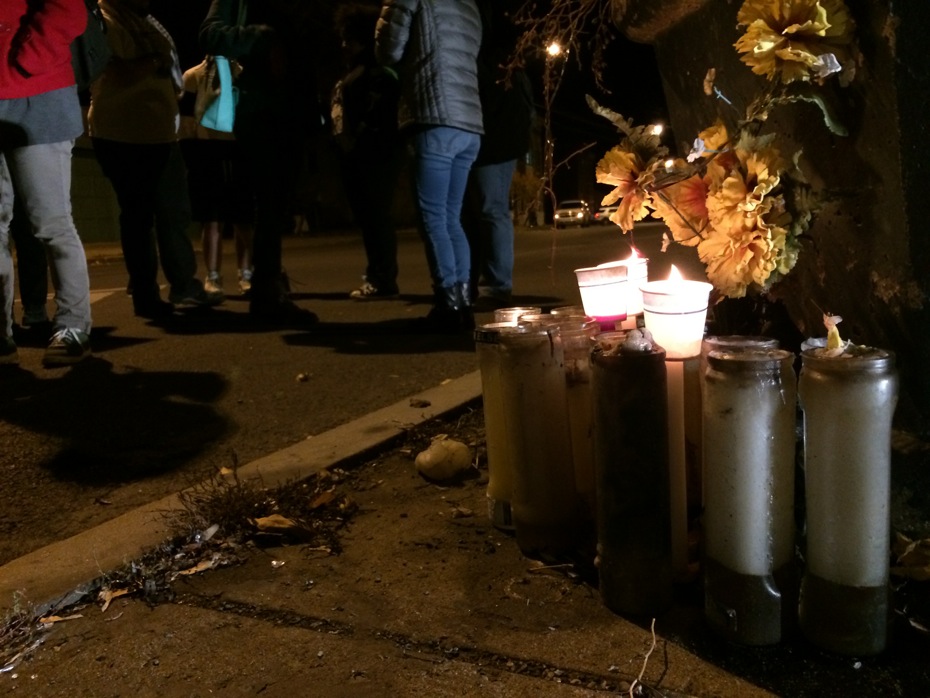
Comments
Does this guy seriously think we should release every drug dealer in prison? So, you can sell heroin, destroy lives, and the government should just shrug its shoulders?
How about this: don't sell drugs.
... said Get Real on Nov 1, 2015 at 9:05 AM | link
"As we know, everyone has racism within them. Everyone has sexism." Speak for yourself, lady.
... said Skeptic on Nov 2, 2015 at 8:41 AM | link
Actually, Skeptic, we all do have racism and sexism within us, at least if we're over the age of 5. Admitting this to ourselves is the first big step in not acting on these -isms and being conscious of when problematic behavior is taking place. It allows us to get past it.
... said JayK on Nov 2, 2015 at 1:47 PM | link
Oh come on JayK, I'm sure Skeptic is so unracist he/she doesn't even see color! And has a black friend.
... said -B on Nov 3, 2015 at 9:30 AM | link